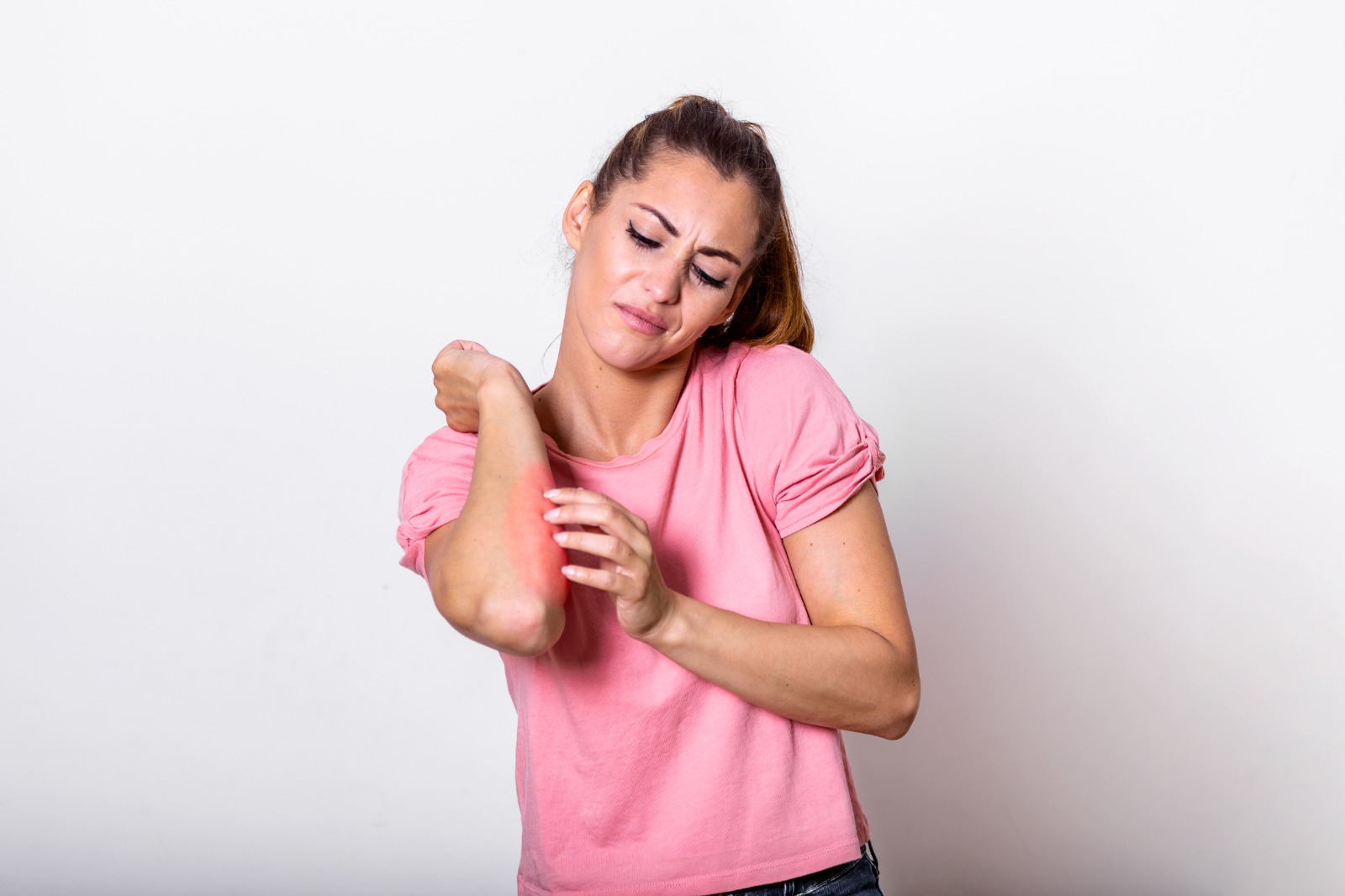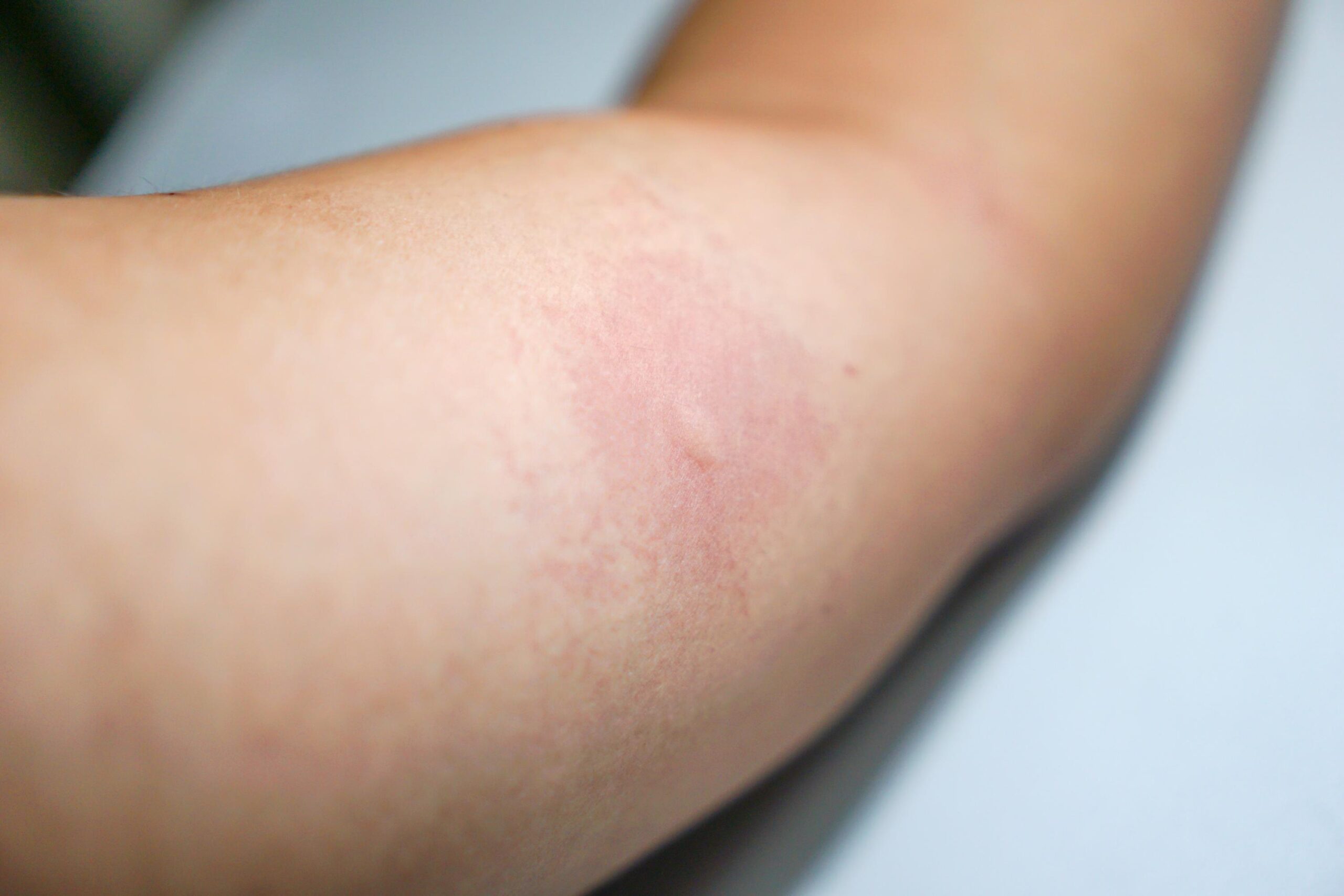

Few diseases have a more enduring impact on the complex picture of skin health than psoriasis, a chronic autoimmune ailment that affects millions of people worldwide. However, in the midst of contemporary medical developments, the age-old knowledge of Ayurveda provides invaluable insights into comprehending and treating this intricate skin ailment. Come along as we on a historical and cultural tour to learn about the origins of psoriasis in Ayurveda, examine its background, and identify the medicinal herbs that can provide hope and healing.
-
What is Psoriasis in Ayurveda?
In the holistic realm of Ayurveda, psoriasis is known as “Sidhma Kushtam” or “Eka-Kushta,” indicating a chronic skin disorder characterized by red, scaly patches and inflammation. Ayurvedic philosophy views psoriasis as a manifestation of imbalances in the body’s doshas—particularly aggravated Pitta and Kapha doshas—resulting from poor digestion, stress, and immune dysfunction. Ayurveda emphasizes the importance of addressing the underlying causes of psoriasis to restore harmony and balance to the skin and body.
-
History of Psoriasis
The history of psoriasis stretches back through the annals of time, with references to skin conditions resembling psoriasis found in ancient medical texts from India, Egypt, and Greece. In ancient India, texts like Charaka Samhita and Sushruta Samhita describe symptoms and treatments for skin diseases, advocating for herbal remedies, dietary modifications, and lifestyle interventions. It wasn’t until the 19th century that modern medicine began to recognize psoriasis as a distinct clinical entity, prompting scientific research and medical interventions to address its prevalence and impact.
-
Some Important Facts about Psoriasis
- Dosha Imbalance: Ayurveda attributes psoriasis to imbalances in the body’s doshas, particularly aggravated Pitta and Kapha doshas, which lead to inflammation, impaired detoxification, and skin irritation.
- Role of Agni: Ayurveda emphasizes the importance of balanced digestive fire or “Agni” in psoriasis, as poor digestion can lead to the accumulation of toxins that affect the skin and immune system.
- Lifestyle Factors: Ayurveda recognizes the impact of dietary habits, stress, and environmental factors on psoriasis, advocating for mindful eating, stress management, and regular detoxification to promote skin health.
-
Research for Psoriasis Based on Ayurveda:
- 1500 BCE: Ancient Ayurvedic texts like Charaka Samhita and Sushruta Samhita document symptoms, causes, and treatments for skin diseases, providing valuable insights into ancient perspectives on dermatological health.
- 1700s: Ayurvedic physicians develop specialized treatments for skin disorders, including herbal formulations, dietary guidelines, and lifestyle modifications, to address the root causes of psoriasis.
- 2001: Clinical studies published in the Journal of Ethnopharmacology demonstrate the efficacy of Ayurvedic herbs such as Neem (Azadirachta Indica), Turmeric (Curcuma Longa), and Manjistha (Rubia Cordifolia) in reducing inflammation, relieving itching, and promoting skin healing in patients with psoriasis.
- 2010: Research conducted at Ayurvedic research institutes in India explores the potential of traditional Ayurvedic therapies, including Panchakarma (detoxification) and herbal supplements, in managing psoriasis and improving skin health.
-
Ayurvedic Herbs for Psoriasis:
- Neem (Azadirachta Indica): Neem is renowned in Ayurveda for its antibacterial, antifungal, and anti-inflammatory properties, making it a potent remedy for psoriasis. It helps reduce inflammation, soothe itching, and promote skin healing.
- Turmeric (Curcuma Longa): Turmeric contains curcumin, a powerful antioxidant and anti-inflammatory compound that helps alleviate symptoms of psoriasis, such as redness, swelling, and flaking.
- Manjistha (Rubia Cordifolia): Manjistha is a blood-purifying herb that helps detoxify the body, reduce inflammation, and promote skin healing in psoriasis.
- Guggul (Commiphora Mukul): Guggul is known for its anti-inflammatory properties and is beneficial in managing psoriasis by reducing inflammation, supporting immune function, and promoting skin regeneration.
-
Stories from Ancient Scriptures:
Legend has it that the sage Charaka possessed profound insight into the treatment of skin diseases. Through his deep understanding of herbs, diet, and lifestyle, Charaka healed countless individuals afflicted with psoriasis, restoring balance and vitality to their skin and body.
“Healthy skin is a reflection of overall wellness.” – Dr. Howard Murad
“Beauty is not in the face; beauty is a light in the heart.” – Kahlil Gibran
-
Conclusion:
The knowledge of Ayurveda provides direction and clarity on the path to skin health and vitality, as well as holistic healing and overall wellbeing. Through adherence to the age-old values of harmony, balance, and mindful life, we can boldly and clearly traverse the difficulties of psoriasis. Join us as we go on a quest to restore robust health and flawless skin by embracing the treasures of Ayurvedic medicines and therapies.






